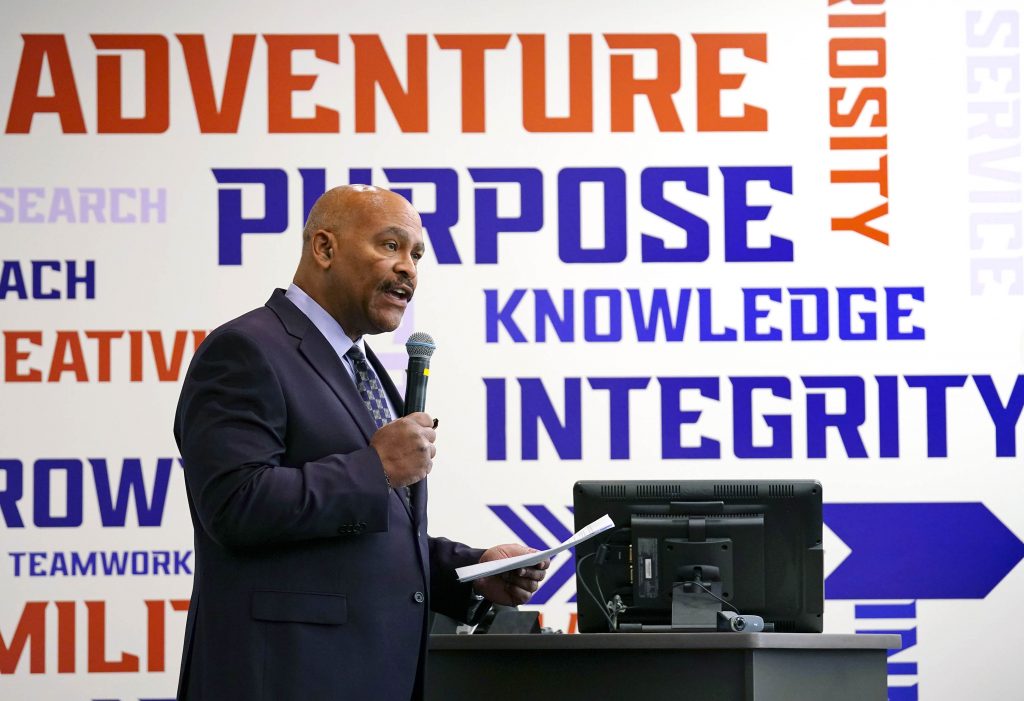
Photos by Ralph Freso / Slideshow
Felicia Mathis asked Grand Canyon University students: What’s your biggest fear when it comes to your job?
Fear of failing, said one student.
Underperforming, added another.
And others: Upsetting people. Losing who you are. An employer asking you to do something that’s not in line with your values.
“All of those are absolutely spot on,” said Mathis, human resources director for Northrop Grumman, at Wednesday’s “Keeping the Faith in the Workplace” Provost Speakers Series session hosted by the Honors College and Gamma Mu Educational Services. It was one of several Integrity Week events shepherded by the college.
The five panelists focused their talk not just on their faith but integrity at work.
Mathis said, “For me to be my authentic self, I had to get past every last one of those. I had to make sure that my job didn’t hold me hostage to do things that were not aligned with my values. So that meant, at any given point, I might make a decision that could get me fired, and I had to be OK with that.
“How do I represent my faith? … If I stood up for what I felt was the right thing and it cost me my job, that was OK for me.”
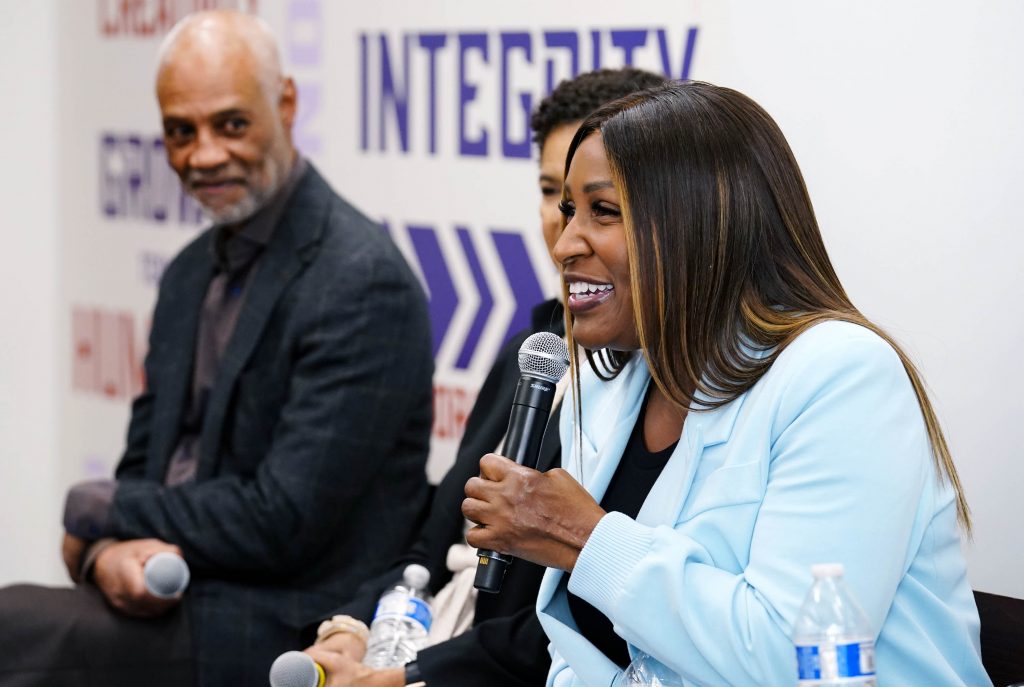
It’s about being confident in your decision, said Dr. Tanae Morrison, founder and CEO of Morrison Education Group and Sun Valley Academy Schools.
“My litmus test is, is this something I can live with? Can I go to sleep at night. … I go the distance to make sure my integrity is demonstrated, not just stated, not just touted, but to really live it.”
In the hourlong presentation, the speakers navigated their way through some tough questions, including: “Do you have any example of where your faith has been immediately challenged in the workplace to make a decision based on your faith?” asked moderator Dr. Don Godbold, director of care at Banner Health.
Godbold shared a crisis from his career involving faith in the workplace.
He was intubating a patient at the Catholic hospital where he worked in Chicago and felt water splashed on his face.
“One of the nurses was baptizing this individual who was about to die; that’s what she thought she needed to do,” Godbold said.
But the patient was a devout Muslim, and that action offended the family and caused a big human resources crisis.
Mathis, who also worked for a Catholic hospital for a time, shared a situation in which a nurse made a call to save a pregnant woman. “Delivering the baby would have cost her and the baby’s life,” she said.
The nurse was removed from her position, and she was in danger of losing her license.
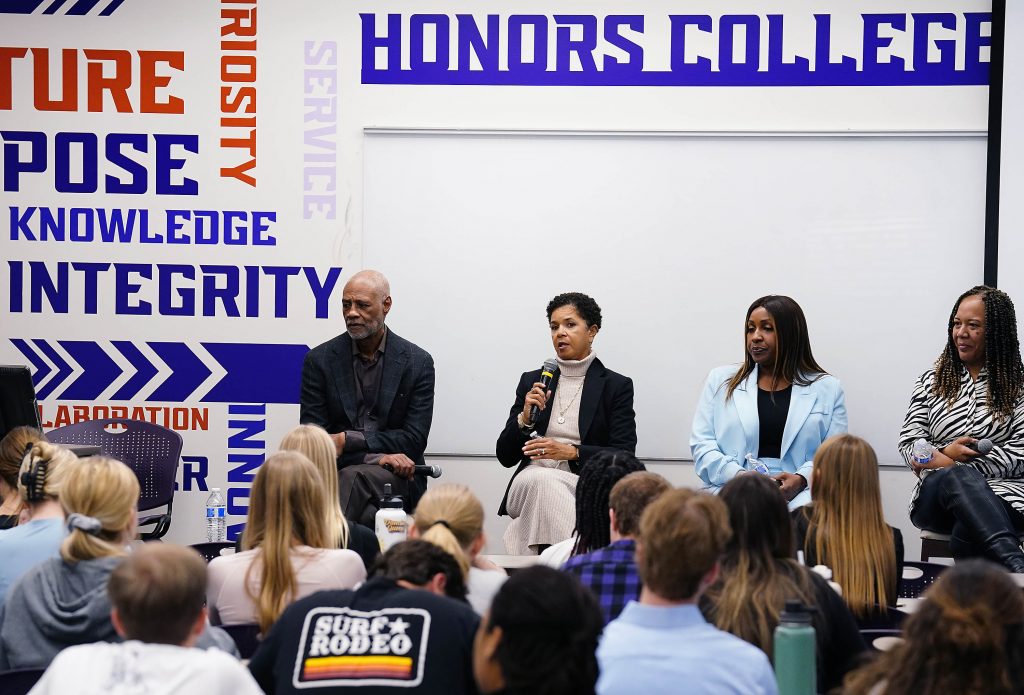
“It was unbelievable what she experienced,” but in talking to her sometime later and asking her if she would have made a different decision, she said, “Absolutely not.”
“I think those are the situations where you have to understand what the consequences are for standing up for your faith,” said Mathis.
For Adrienne Coleman, who was a project and program manager in the aerospace and high-tech electronics industry, her test of faith came when her company made a decision to divest in a country where she had employees.
“I was under pressure to bring members of my team to the U.S. to do work, and I knew they were going to lose their jobs,” she said. She told the company, “I’m not doing it unless we find a way to compensate them, and we’re going to tell them we’re going to divest. I wanted it to be transparent.”
She said she asked herself in that situation, “How would I want to be treated,” and based her actions on her sense of integrity.
The panelists spoke about staying true to yourself, even when your employer might ask you to do something that goes against your faith.
Emerson Yearwood, who retired as the in-house regulatory counsel at Sparklight and spent 25 years in the broadband/cable industry, said he has been guided in his career by the golden rule, “Do unto others as you would have them do unto you, and the second thing is, just do the right thing. … In terms of engagement with people of other cultures, you actually have to make an effort to educate yourself as to what it is that makes people who they are.”
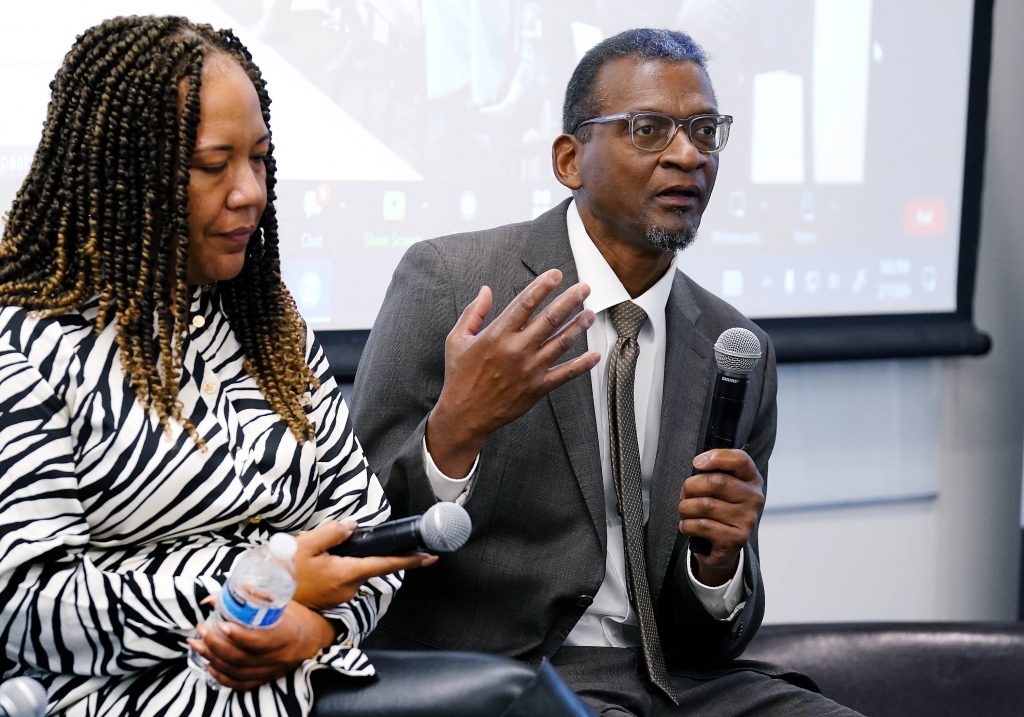
Milt Coleman, a retired Intel Corp. executive and member of the Colangelo College of Business advisory board, has led employees across seven U.S. sites and six countries. It’s important, he shared, not just to live by your own faith but to respect the faith of others.
For him, that meant not scheduling meetings on Fridays because of shabbat, the Jewish day of rest.
“I did not make a big deal out of it. We just didn’t meet on Fridays. Period. I’m a firm believer that we’re all investors of our religion. At the end of the day … the perception of any religious faith is based on the interactions they’ve had with people from that faith.
“What I tried to do is role model the tolerance instilled in us at an early age and reflect back how I accommodated their needs.”
His wife, Adrienne Coleman, also oversaw teams all around the world in her career. She said at the time she didn’t discuss her religion in the workplace; she shied away from it.
“I always operated with a sense of integrity. My work was my bond,” and in working with people of other religions, she said, “We might not talk about their religion, per se, but being respectful of what their principles were helped me bring the best out in the workplace.”
Students at the end of the talk asked speakers about work-life balance.
At times, you won’t have it, said Mathis. “Earlier in my career, I was a young mom pursuing the corporate ladder, all of that good stuff, and I would say I negotiated things that should have been nonnegotiable. There were some events with my children, there were some events with my family, that I put on the backburner for the sake of taking one for the team.
“In reality, I think you have to step back and really examine what’s your purpose, what are we here for, and I don’t necessarily believe it’s about making a company or other people rich.”
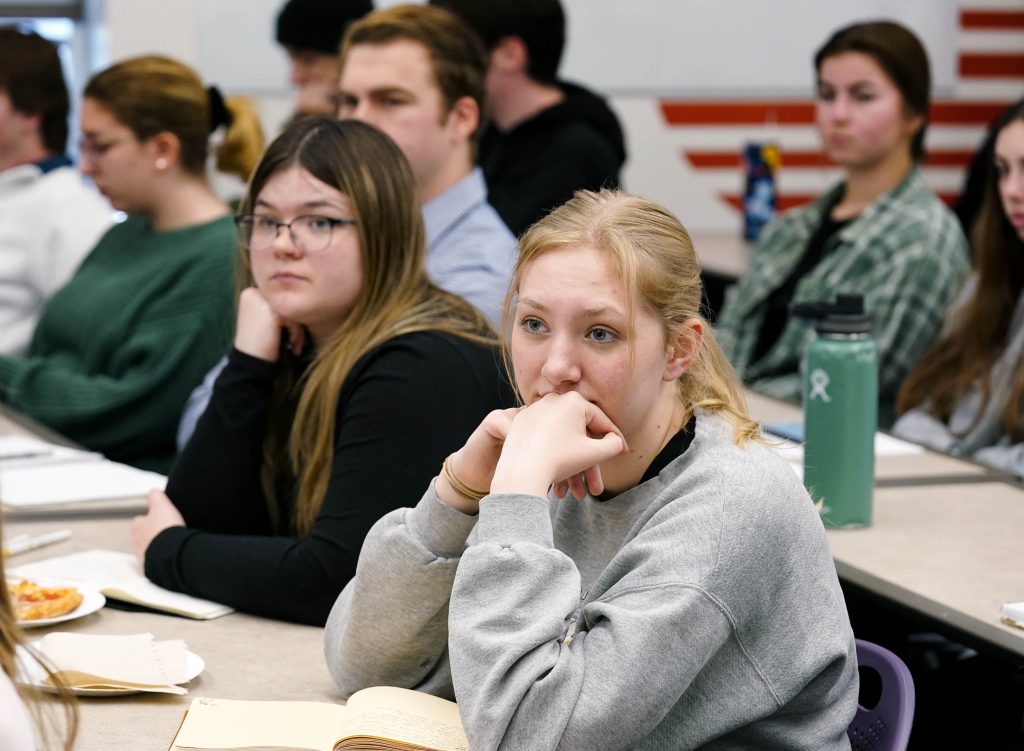
As a good mom, Mathis said she had to draw those lines.
Adrienne Coleman negotiated with her company up front on how she would categorize her time. She would work early in the morning, take a break in the afternoon and log back on at night, from 9 p.m. to 1 a.m. or 2 a.m.
“That wasn’t something that was given to me as an option. It was a condition … I loved where I worked. I loved the challenges, but I also loved my family.
“So sometimes you have to be creative in how you approach your job.”
Morrison added how “there are seasons of time for everything.” In her career, she knew education was her calling, her “assignment,” that she knew gave her purpose.
She admits that she did not have work-life balance at the time. Building her business was the hardest thing she has ever done. She advised students, “Know your assignment. Know what you’re called to do … and then determine what is reasonable.”
Students also asked about money and integrity.
Morrison said, “It’s OK to have ambition. It’s OK to want to be successful. … But what you’ll find is true happiness comes from that place of faith,” and to always keep your faith. It grounds you, she said.
“I’ll be honest with you,” shared Milt Coleman.” Until the age of 28, it was all about me. I made as much money as I could. Bought the nicest car I could, all of that,” but he realized it has to be more than him.
If money is your motivation, you’ll run out of fuel. “But if your fuel is, what can I do for my family? What can I do for others? … That fuel never runs out.”
Manager of Internal Communications Lana Sweeten-Shults can be reached at [email protected] or at 602-639-7901.
***
Related content:
GCU News: GCU students sign on to stress integrity in academics, work
GCU News: 'People are good': A video message from GCU students



































































